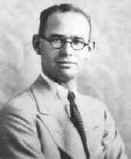Gareth Jones
[bas relief by Oleh Lesiuk]
HOME |
Stop Press |
Complete Soviet Articles & Background Information |
Précis of Gareth's
|
All Published Articles |
BOOKS
|
|
|
|
More Than Grain of Truth(2005) |
|
|
TOPICAL
'Are you Listening NYT?' U.N. Speech - Nov 2009 |
Gareth Recognised at Cambridge - Nov 2009 |
Reporter and the Genocide - Rome, March 2009 |
Order of Freedom Award -Nov 2008 |
Premiere of 'The Living' Documentary Kyiv - Nov 2008 |
Gareth Jones 'Famine' Diaries - Chicago 2008 |
Aberystwyth Memorial Plaque 2006 |
GENERAL
Scholarship Fund |
Site Map |
Links |
Legal Notices |
Sponsored Links |
Contact |
The Western Mail 11th September, 1933TRAMPING IN THREE WELSH COUNTIES Search for Old Celtic QualitiesBy GARETH JONES“If a man be gracious and courteous to strangers it shows that he is a citizen of the world,” wrote Francis Bacon three centuries ago. If Bacon was right Wales is full of citizens of the world, and I met many of them when I walked through mining villages, along mountain streams, following the border of Breconshire. and Carmarthenshire, across the Black Mountains to the Usk and from the Usk to the Towy. It was a tramp in search of personalities. Before setting out I asked myself: Has the twentieth century crushed the Welsh hospitality and courtesy of the past? Has our mechanical, age levelled men and women until they are all alike? Is there still left in Wales the Celtic fantasy and legend which delighted our ancestors? Has Puritanism banished humour from our midst? My answer to these questions will be to tell of the gracious welcome of people to whom I was a stranger, of ‘the wit which sparkles in Welsh villages, of the laughter which stilt resounds in Welsh cottages, and of the fairy tales still told around the kitchen fire. My First EncounterAnd now forward to search for the personalities of Wales to-day. My starting point was Pontardawe, but I experienced my first strange encounter when the bus was leaving Swansea and approaching Clydach. Behind me I heard strains of melancholy song, monotonous and weird, yet not unlike a Welsh hymn in the minor key, sung by two men with high voices. Looking around, I saw two Indians, whom I greeted and questioned concerning their drooping moustache, replied, “That was one of the songs we used to sing in our village in Lahore.” “What is it like in your village?” Their faces brightened and one of them replied in his strange broken English: “There are some rich farms there and much fruit growing. It is not like South Wales. We make everything in our own village, make our own cloth and the potter, you see him making pots out of clay in the road.” I remarked that Gandhi favoured home industries and asked whether they liked Gandhi. One answered with enthusiasm: “Gandhi good man. He holy man. He fasting and can never die through fasting.” The other broke in: “I can fast too. I fasted for two weeks and only had water and salt. “They continued to tell me of their adoration of Gandhi, how he wanted India to be free and how he wanted the English to go. “What do you think of us in Wales?” I asked. The Hindu with the moustache pondered and said: “Welsh treat us good. They are different from English, they are better, kinder, more friendly. My brother here and me, we learn Welsh.” “Oh, and what have you learned?” “We know ‘Bore da,’ ‘Nos da.’ but the one we know best is ‘Dim arian’ (No money). But we hope that ‘Dim arian’ will not be true in Brecon where we now go to sell ties.” PontardaweThis conversation brought me to a town which appeared to be Fontardawe. Addressing myself to a traveller in front I inquired: “Is this Pontardawe?” “No, no,” he said; “ this is only the outskirts of the town.” I resigned myself to a long drive through the suburbs, but thought it wise to ask: “How far is the centre?” “The centre is there,” he said, pointing to a four cross-roads only fifty yards away. So, having wished the Indians “Good luck” in selling ties in Brecon, I descended into Pontardawe. Here I met, my first Welsh personality, and a tragic one he was. I saw him leaning against the bridge, staring aimlessly down the street. Boredom was written across his face. I felt guilty at having good clothes and good food, and I remembered that he was but one, of. many standing idle in the streets of South Wales. “NothingTo Do!”I approached him and found not revolutionary fervour nor passionate hatred nor a desire to tear all the symbols of capitalism down, but a hungry apathetic bitterness, without enough energy for passion. “There is nothing to do, nothing, nothing,” he said in Welsh. “All we do is to hang about all day, waiting for something to turn up, and nothing ever turns up.” Far more effort should be made in this country to rescue such a man from the effects of unemployment., I thought, as I tramped further on the Gwaun-cae-gurwen road to Rhydyfro, where a more cheerful prospect awaited me. |
GARETH JONES (1905 -35) |




